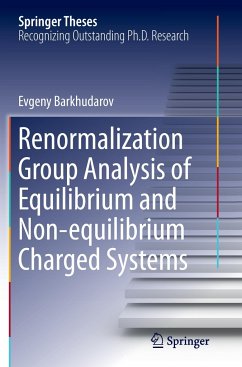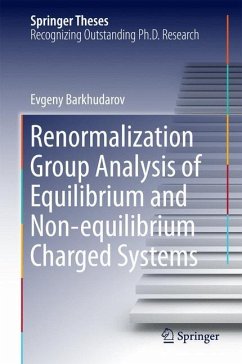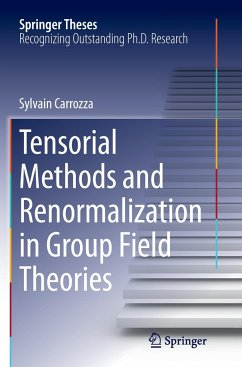
Renormalization Group
Versandkostenfrei!
Versandfertig in 6-10 Tagen
39,99 €
inkl. MwSt.

PAYBACK Punkte
20 °P sammeln!
High Quality Content by WIKIPEDIA articles! In theoretical physics, renormalization group (RG) refers to a mathematical apparatus that allows one to investigate the changes of a physical system as one views it at different distance scales. In particle physics it reflects the changes in the underlying force laws as one varies the energy scale at which physical processes occur. A change in scale is called a "scale transformation" or "conformal transformation." The renormalization group is intimately related to "conformal invariance" or "scale invariance," a symmetry by which the system appears t...
High Quality Content by WIKIPEDIA articles! In theoretical physics, renormalization group (RG) refers to a mathematical apparatus that allows one to investigate the changes of a physical system as one views it at different distance scales. In particle physics it reflects the changes in the underlying force laws as one varies the energy scale at which physical processes occur. A change in scale is called a "scale transformation" or "conformal transformation." The renormalization group is intimately related to "conformal invariance" or "scale invariance," a symmetry by which the system appears the same at all scales (so-called self-similarity). As one varies the scale, it is as if one is changing the magnifying power of a microscope viewing the system. The system will generally make a self-similar copy of itself, with slightly different parameters describing the components of the system. The components, or fundamental variables, may be atoms, fundamental particles, atomic spins, etc. The parameters of the theory typically describe the interactions of the components.












